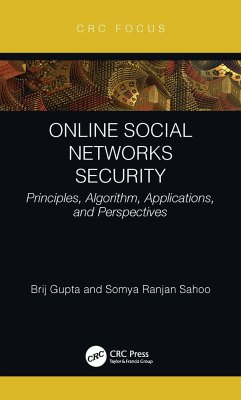In recent years, virtual meeting technology has become a part of the everyday lives of more and more people, often with the help of global online social networks (OSNs). These help users to build both social and professional links on a worldwide scale. The sharing of information and opinions are important features of OSNs. Users can describe recent activities and interests, share photos, videos, applications, and much more. The use of OSNs has increased at a rapid rate. Google+, Facebook, Twitter, LinkedIn, Sina Weibo, VKontakte, and Mixi are all OSNs that have become the preferred way of communication for a vast number of daily active users. Users spend substantial amounts of time updating their information, communicating with other users, and browsing one another's accounts. OSNs obliterate geographical distance and can breach economic barrier. This popularity has made OSNs a fascinating test bed for cyberattacks comprising Cross-Site Scripting, SQL injection, DDoS, phishing, spamming, fake profile, spammer, etc. OSNs security: Principles, Algorithm, Applications, and Perspectives describe various attacks, classifying them, explaining their consequences, and offering. It also highlights some key contributions related to the current defensive approaches. Moreover, it shows how machine-learning and deep-learning methods can mitigate attacks on OSNs. Different technological solutions that have been proposed are also discussed. The topics, methodologies, and outcomes included in this book will help readers learn the importance of incentives in any technical solution to handle attacks against OSNs. The best practices and guidelines will show how to implement various attack-mitigation methodologies.
Hinweis: Dieser Artikel kann nur an eine deutsche Lieferadresse ausgeliefert werden.
Hinweis: Dieser Artikel kann nur an eine deutsche Lieferadresse ausgeliefert werden.








